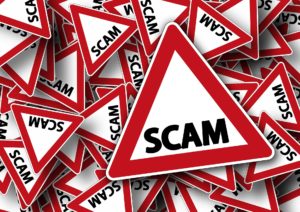Scams are happening all around us at any given time. When a disaster happens like a hurricane or a national pandemic new scams start to emerge due to the circumstance. With the onset of Coronavirus, new scams have started specific to the pandemic. Here are some to watch out for.
Calls from the Emergency Management Agency (EMA). There has been reports of people getting calls that claim to be from the EMA asking for social security numbers. Note that EMA will not ask for your personal information over the phone.
the Emergency Management Agency (EMA). There has been reports of people getting calls that claim to be from the EMA asking for social security numbers. Note that EMA will not ask for your personal information over the phone.
Calls about the stimulus check. When the stimulus checks start to go out, scammers will call or email people telling them that they cannot get their check because the IRS does not have their banking information or that they need to “sign up” for their check. Do not give out your bank information or other personal information. If the IRS does not have your banking information to receive your check, you will get a letter in the mail, or your check will be mailed to you.
COVID-19 Tests, Cures, or Treatments: There are also claims out there claiming that they have a cure for Coronavirus. Currently there are no cures for the virus. Along those same lines there are also claims of test kits that are not actual tests for the virus. If you feel you need tested contact your primary care physician.
In general, with these scams and others, never give out your social security number or bank information over the phone. Also, do not wire money to someone or a business you do not know. If someone calls you on the phone, ask a lot of questions. Scammers are very good about convincing you they are the real deal. By asking questions you can try and determine if they are the actual business they claim to be. If you get a call that is suspicious, hang up, look up the number for the real agency and call them back on their legitimate number to see if the call was fake or real. Along with calls, email has also been hotspot for scams. Before clicking on a link in an email, hover over the link to make sure the hyperlink is taking you to a legitimate website. Certain websites may look like the real deal, but are in fact fake sites to get you to give out your information.
Every time something happens in the world, it is an opportunity for scammers to get your personal information. Be careful to follow your instincts and keep your private information private. The Federal Trade Commission has a huge amount of resources on scams related to the Coronavirus and lots of other scams, check it out here https://www.consumer.ftc.gov/features/scam-alerts

